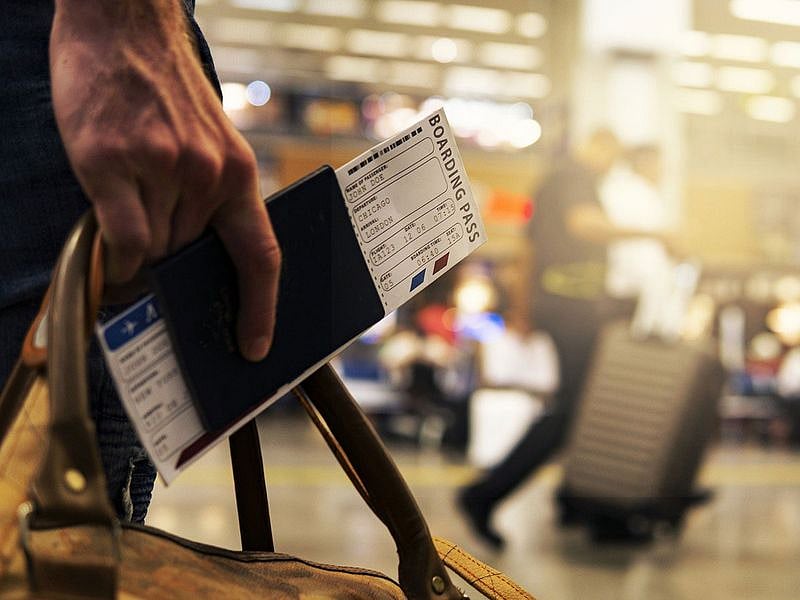Why chip-enabled e-passports are a game-changer for your travel plans
For UAE residents and frequent flyers, they’re more than a sleek upgrade

Dubai: If you’ve ever been stuck in a long immigration queue while others glide through automated e-gates, you’ve already witnessed how chip-enabled passports — or biometric passports — are changing global travel.
For UAE residents and frequent flyers, they’re more than a sleek upgrade. They’re making travel faster, safer, and more secure across borders that are getting smarter every year.
Speed: Less time, more freedom
At the heart of the e-passport revolution is a tiny electronic chip that uses RFID (Radio-Frequency Identification) technology to store a traveller’s information securely.
According to the International Civil Aviation Organization (ICAO), which sets global passport standards, “e-Passports add a layer of security to traditional non-electronic passports by embedding an electronic chip in the passport booklet that stores the biographical and biometric information of the holder.”
That single change reshapes how border control works:
Automated e-Gates: Travellers with e-passports can often use e-gates at major international airports, skipping manual inspection.
Instant Data Reading: RFID scanners can verify your information in seconds, reducing bottlenecks.
Global Acceptance: Since e-passports meet ICAO’s standards, they are recognised and trusted worldwide — from Dubai to London to Singapore.
ICAO reports that over 160 countries now issue biometric passports, and nearly all major airports are equipped with chip-reading systems. These systems make border clearance not only quicker but more consistent across nations.
Smarter, safer: Built-in protection
While speed improves convenience, the real strength of an e-passport lies in its layers of digital security. Each chip contains the traveller’s personal details and biometric data — a digital photograph, and sometimes fingerprints or iris scans — stored in encrypted form.
The data is protected by Public Key Infrastructure (PKI) technology, which makes forgery or tampering virtually impossible. ICAO explains that the PKI framework “ensures the authenticity and integrity of data stored on the chip, so that any attempt to alter information can be detected instantly.”
That means immigration systems can cross-check a live facial scan with encrypted chip data in seconds — confirming that the traveller presenting the passport is indeed its rightful owner.
To prevent cloning or unauthorized access, most e-passports also feature Active Authentication (AA) and anti-skimming measures. The latter often includes a metallic mesh embedded in the cover, blocking any wireless reading when the passport is closed.
As Regula Forensics, an ICAO-compliant document verification company, notes: “The richer set of pre-stored reference points in modern e-passports has eliminated the need for separate face detection and feature extraction, allowing consistently fast and accurate recognition results.”
Why this matters for UAE travellers
For UAE travellers — whether Emiratis or expats frequently flying to Europe, Asia, or the Americas — e-passports are already streamlining the journey.
Faster processing: Automated e-gates at airports such as Dubai International, Abu Dhabi, Heathrow, and Changi already rely on chip data.
Higher trust: E-passports make it nearly impossible to counterfeit documents, giving UAE passport holders smoother entry at visa-on-arrival destinations.
Stronger data protection: Your biometric information is encrypted, not printed or stored in visible form.
India began issuing new generation of chip-embedded passports recently, marking another step forward. The Indian Ministry of External Affairs said the e-passport rollout “marks a major technological upgrade in India’s travel documentation, aligning with ICAO’s global standards for digital security.”
Private sector experts agree. Travel-tech firm Keesing Technologies calls e-passports “a higher level of security compared to non-electronic passports. The embedded chip is encrypted and difficult to forge or tamper with.”
Should you upgrade?
If your passport is still a traditional machine-readable version, it’s worth upgrading at your next renewal. Many countries — including the UAE, India, and much of Europe — have now made biometric passports the default option.
Even if you travel occasionally, the benefits add up: faster border clearance, stronger identity protection, and wider global acceptance.
In a world where airports are going fully digital, your passport is catching up. For travellers living in the UAE — one of the world’s most connected aviation hubs — switching to a chip-enabled passport isn’t just about efficiency. It’s about staying in step with how international travel now works: faster, smarter, and safer.
Sign up for the Daily Briefing
Get the latest news and updates straight to your inbox
Network Links
GN StoreDownload our app
© Al Nisr Publishing LLC 2026. All rights reserved.
